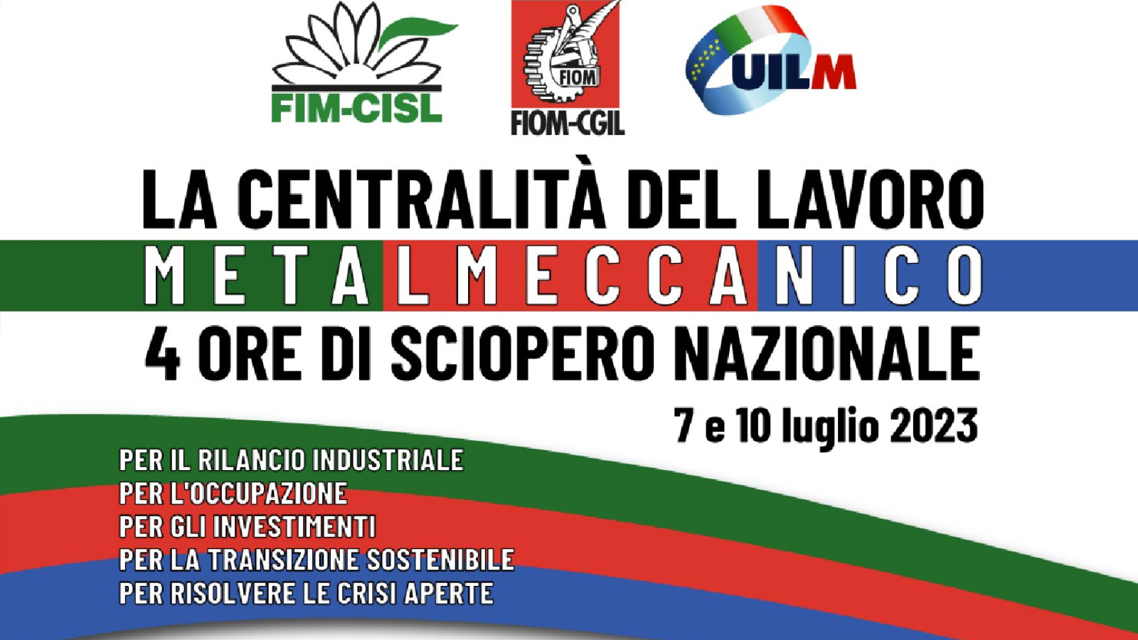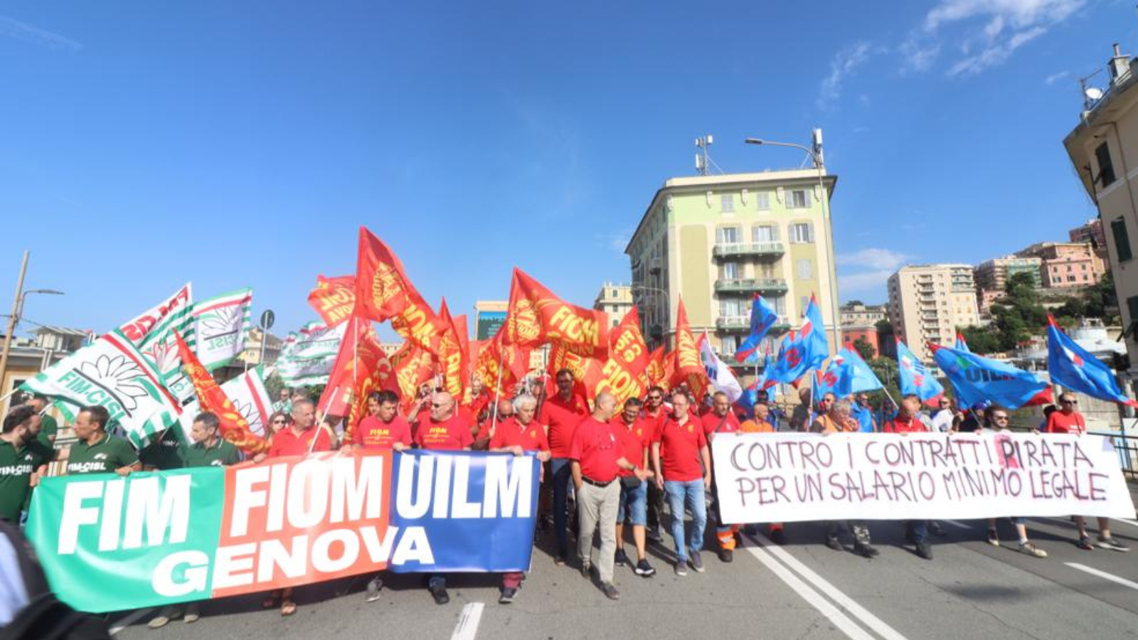For years, Italy has seen its manufacturing base shrink considerably due to a lack of forward-looking industrial policy. In today's reality of environmental, digital, energy and technological transition, employment in the metalworking industry is clearly not on the government's agenda.
This is why the country's three metalworkers' unions found it necessary to raise awareness of the pressing needs of a sector that has been a mainstay of the Italian economy for generations. The four-hour strike by FIOM, FIM and UIL M on 7 July will focus mainly on the following issues:
- Employment
- Investment
- Sustainable transition
- Resolution of urgent crises in several large companies
- Loss of purchasing power and social conditions for workers in the manufacturing sector.
Unfortunately, there is a great deal of uncertainty caused by a lack of understanding and initiative on the part of the authorities. The trade unions point to the risk of a further deterioration in economic, industrial and social conditions. They stress the need to put the engineering industries back at the forefront of Italian politics. Moreover, the ecological and digital transition must be agreed with the workers through a fruitful social dialogue.
The mobilisation also takes place against the backdrop of intensified efforts by the US and China to play an even more dominant role in global manufacturing and international trade. They are putting unprecedented economic resources at the disposal of their domestic manufacturers. If Europe's industrial policy lags behind its competitors, Italy and the rest of Europe will lose jobs, wealth and strategic autonomy.
That is why the three metalworking unions are taking industrial action to demand a national strategy that will give a better future to key sectors where tens of thousands of jobs are at risk of being lost through downsizing, closure or relocation. This is the tragic situation in a cost of living crisis where at least half of working families are struggling to make ends meet.
Deputy General Secretary Judith Kirton-Darling expresses deep disappointment at the lack of initiative from the Italian authorities in the current crisis:
“The Italian government must proactively engage in close dialogue with companies and unions in the metal sector to promote growth and a fair transition to a green and digital metal industry of the future.”
Deputy General Secretary Isabelle Barthès adds:
“Passivity on the part of the Italian government is the last thing we need in the current cost of living crisis. People need a proactive state that promotes good, well-paid jobs for men and women, not politicians who shirk their responsibilities. The signals from Brussels, including the EU institutions, are that social dialogue and collective bargaining are the key to success in delivering the ongoing transitions.”


